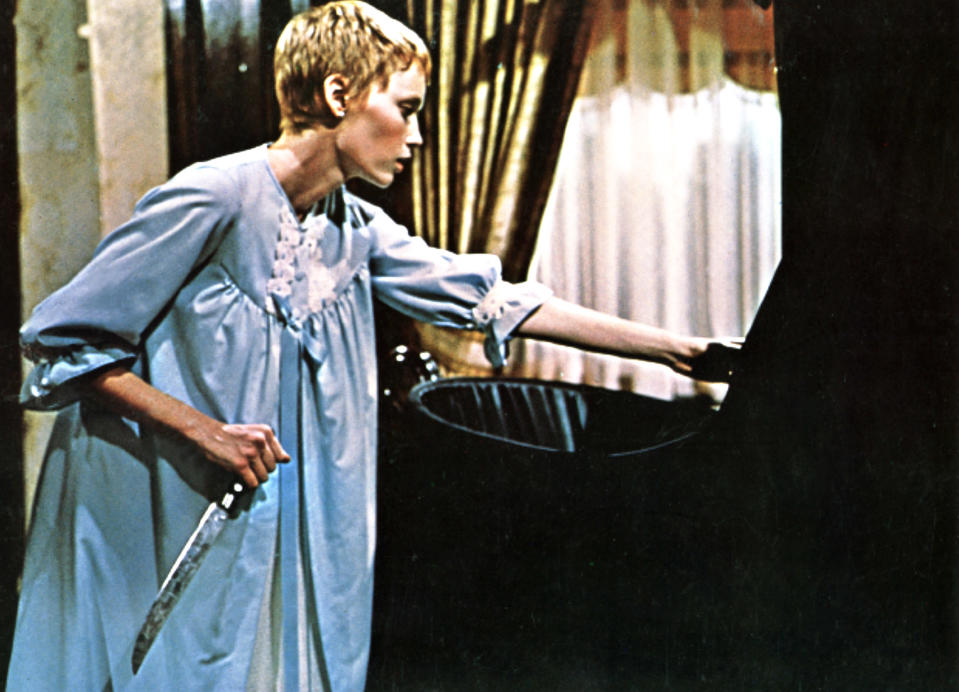Peter Bart: Desperate Times Often Led To Groundbreaking Movies – Will They Do So Again?
- Oops!Something went wrong.Please try again later.


With festivals beckoning and box office wobbling, this obnoxious question looms ever larger: What’s next?
The strikes will end and a new season will begin but where’s that next cycle of movies and streaming content that represent groundbreaking ideas? Where will they come from?
More from Deadline
Peter Bart Remembers His Friend William Friedkin: Brilliant, Brooding, Cerebral & A Lover Of Film
Lock Yourselves In A Room & Don’t Come Out Until You Shake Hands On A Deal
'Gran Turismo' Revs To $1.4M In Thursday Previews - Box Office
A quick survey of past groundbreakers poses some answers, all of them disturbing.
Breakthrough movies of years past have represented the unpredictable product of corporate guile (The Avengers), artistic monomania (Avatar) or accidents of history (Barbie).
Some hits invaded the zeitgeist because they were relentlessly defiant (Midnight Cowboy) or simply inevitable (Harry Potter). Ironically, some of Hollywood’s most culturally ambitious movies were distributed at moments when films were being largely ignored by the filmgoing public – Doctor Zhivago (1965) or Lawrence of Arabia (1962).
Cinema, as with every form of pop culture, has gone through cycles of bold innovation as well as pervasive failure. Hollywood, circa the early 1960s, found its audience fleeing to television; it even tried to reinvent Elvis as a cowboy hero to remedy the defection.
Given their moment of opportunity in 1970 the filmmakers seized power from the dealmakers, only to lose it once again in the early ‘80s – hence the birth of “high concept” movies. The Beverly Hills Cops bumped away the Nashvilles.
Spurred by the ongoing strikes, there’s a growing paranoia about the intentions of the New Gatekeepers. Are Disney, Netflix, Warner Bros Discovery and Amazon exercising stifling multi-platformed dominance both psychically and commercially? Has the brave new world of streamers become a dark cloud over creative output?
Which takes us back to that stubborn question: Where do great films come from? A superficial glimpse of film history would lead us to believe that they emerge not from times of success, but from moments of distress.
Filmmakers like to point to the early ‘70s as a springboard of innovation. Those of us who lived through that period remember that its one overriding mood was desperation: The system was broken. Major studios had run out of money. Top stars had lost their cushy deals and indie producers their funding.
The upshot: Both studios and filmmakers had to think outside the box because the box was broken. An underfinanced non-studio called United Artists took a chance on a British director (John Schlesinger) who had no knowledge of the U.S. to make an X-rated, plotless, mis-titled Midnight Cowboy – and hit paydirt.
A distributor of B-picture action films named Joe Levine helped underwrite an offbeat sex comedy titled The Graduate, compelling director Mike Nichols and producer Larry Turman to eviscerate their budget and shrink their shooting schedule – they warned their movie would be unreleasable.
Meanwhile, 20th Century Fox greenlit a tough cop movie titled The French Connection, pre-warning director Billy Friedkin that he couldn’t go over budget because there was no money left. The studio was shuttering.
Its rival in poverty, Paramount, was traveling another route: It was buying the rights to properties like The Godfather and Rosemary’s Baby, but tying them to reluctant filmmakers (Francis Coppola and Roman Polanski) who were desperate for a paycheck.

The mood in the filmmaking community of that period was one of angst. Sound familiar?
A report from the Writers Guild this week argues that the present structure of the entertainment industry is one of shared despair. Hollywood is failing both its employees and its audiences.
A look at history suggests that that prognosis may open the way for a new moment of innovation. Or at least a novel form of failure.
Best of Deadline
2023 Premiere Dates For New & Returning Series On Broadcast, Cable & Streaming
SAG-AFTRA Interim Agreements: Full List Of Movies And TV Series
Hollywood & Media Deaths In 2023: Photo Gallery & Obituaries
Sign up for Deadline's Newsletter. For the latest news, follow us on Facebook, Twitter, and Instagram.

